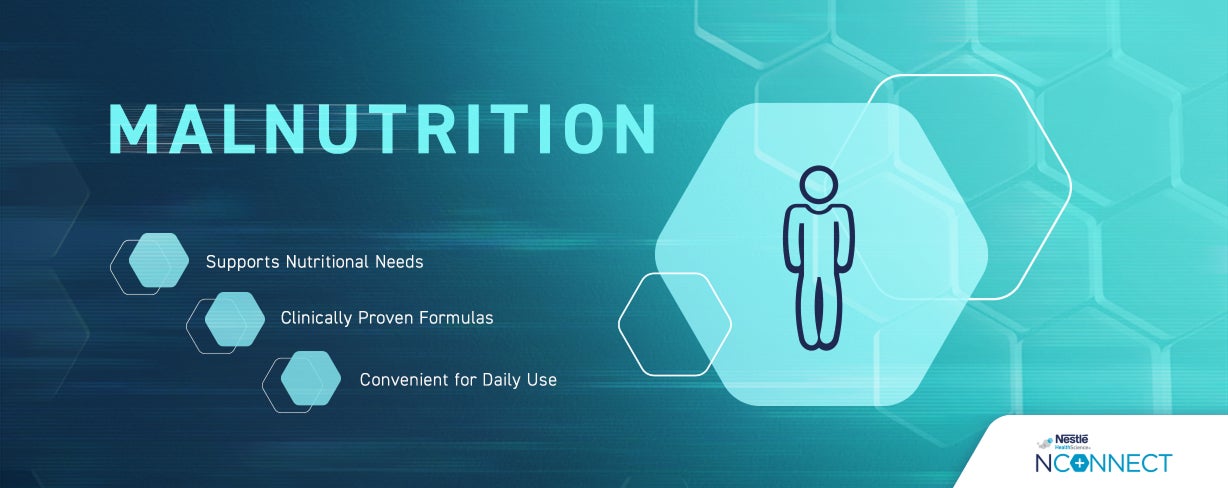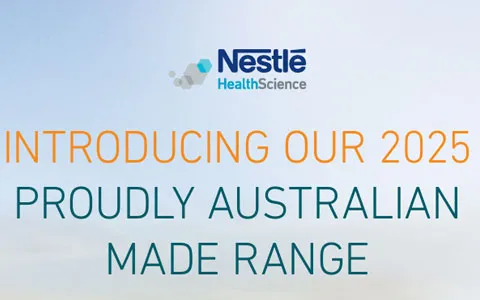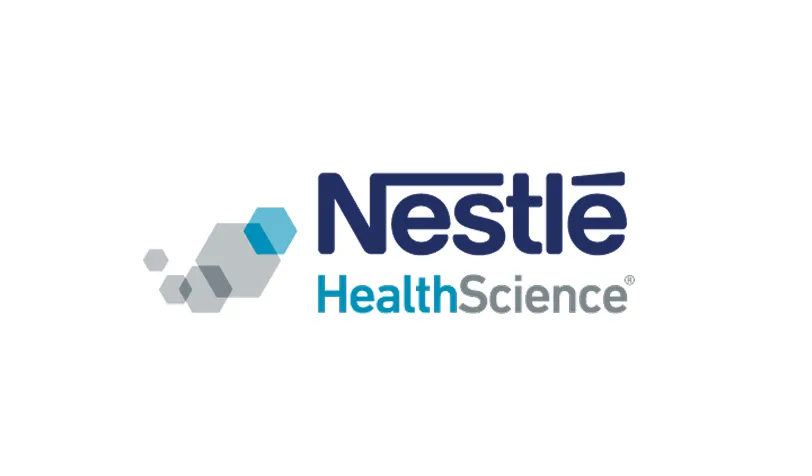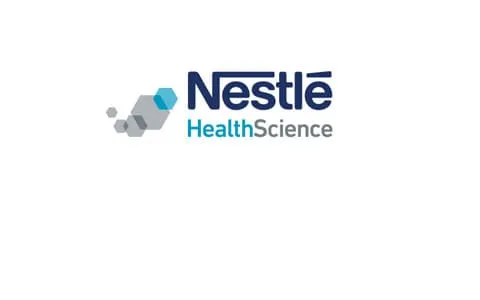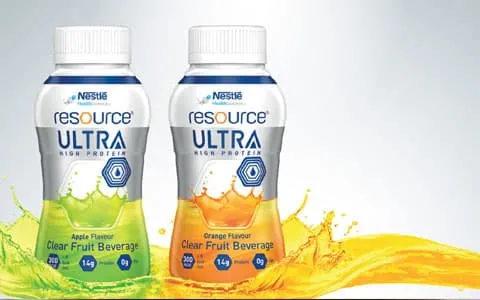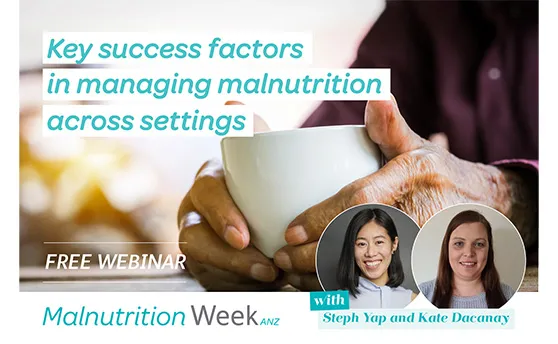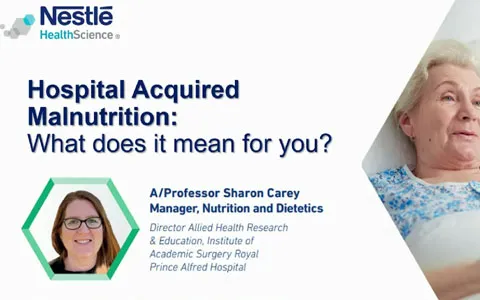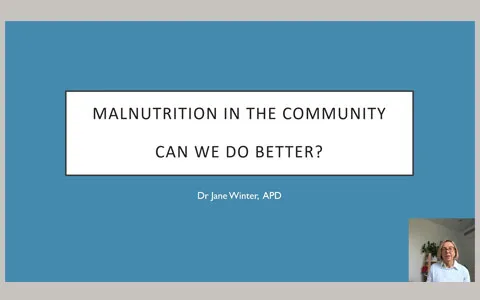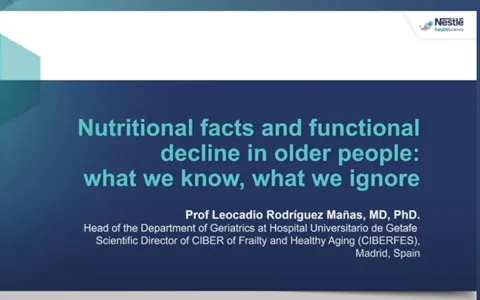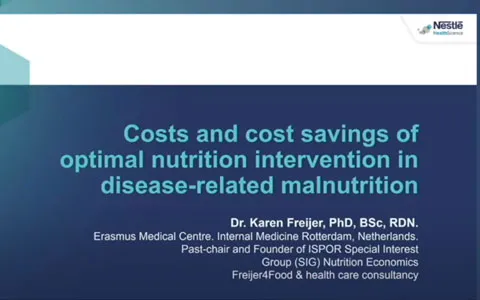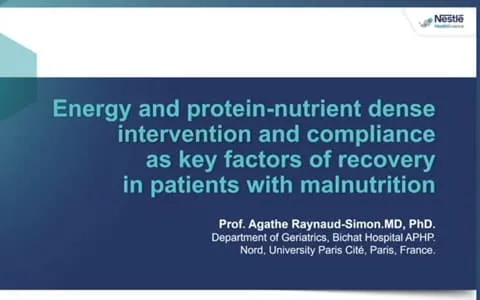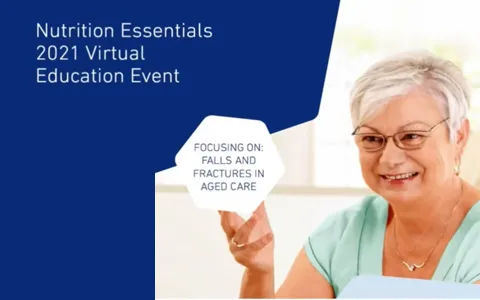Malnutrition
Highlight of the month
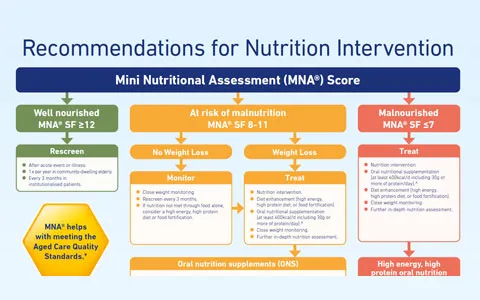
Assess nutritional status & implement interventions
The Mini Nutritional Assessment (MNA®) is a validated screening tool to help identify individuals over the age of 65 who are malnourished or at risk of malnutrition to help determine nutritional status. This guide provides recommended nutrition interventions based on the patients' MNA® scores.
See moreUtilise one of our recipes with an addition of SUSTAGEN, to help assist you with your dietary needs or goals
This exciting initiative across a select range rolls out from March with full availability by August. Find out more information here. Download Resource Plus Product Information Sheet
Li ML, Zhang F, Luo HY, Quan ZW, Wang YF, Huang LT, Wang JH. Improving sarcopenia in older adults: a systematic review and meta-analysis of randomized controlled trials of whey protein supplementation with or without resistance training. J Nutr Health Aging. 2024 Apr;28(4):100184 Results from Ten randomised control trial studies including 1154 participants, demonstrate the value of whey protein (9.6-40g per day) supplementation in adults with sarcopenia. When compared to Isocaloric placebo (PLA)/Routine consultation (RC) group, whey protein consumption significantly increased appendicular skeletal muscle mass index and muscle mass in addition to gait speed.
Lee SY, Lee HJ, Lim JY. Effects of leucine-rich protein supplements in older adults with sarcopenia: A systematic review and meta-analysis of randomized controlled trials. Arch Gerontol Geriatr. 2022 Sep-Oct;102:104758. Data from six randomised controlled trials including a total of 699 participants, demonstrate that the consumption of leucine-rich protein supplements (offering 3-6g leucine per day) can improve muscle strength, muscle mass and performance in sarcopenic older adults compared to a control group (P<0.001) and may be suggested as a nutritional treatment for sarcopenia.
B. Komar, L. Schwingshackl, Georg Hoffmann, Effects of leucine-rich protein supplements on anthropometric parameter and muscle strength in the elderly: A systematic review and meta-analysis, The Journal of nutrition, health and aging, Volume 19, Issue 4, 2015, Pages 437-446 Leucine supplementation has shown to significantly increase gain in body weight (p=0.02), lean body mass (p=0.0005) and body mass index (p=0.001) compared with control groups. Furthermore, the benefit of leucine supplementation has a more profound impact on body weight and lean body mass in individuals who have pre-existing sarcopenia.
Introduce RESOURCE® Crema 2.0 a delicious pudding style energy dense, high protein, low volume oral nutritional supplement. Each ready to consume 125g tub is nutritionally complete and suitable as a sole source of nutrition, which makes it great to provide variety or to be used as an alternative to liquid oral nutritional supplements. Learn more here.
RESOURCE® ULTRA+ 125ml is an energy dense, high protein, low volume oral nutritional supplement. RESOURCE® ULTRA+ has a unique, premium blend of high-quality proteins (60% whey protein, as a percentage of total protein) designed to promote gains in lean body mass. Learn how RESOURCE® ULTRA+ can be used to help optimise protein intake to support compliance and improve the nutritional status in patients with age or disease-related malnutrition.
This online fact sheet considers the relationship between dementia management and nutrition in an aged care settings and shows a range of Nestlé Health Science solutions that can help improve the nutritional status of those in aged care such as SUSTAGEN, RESOURCE 2.0 and RESOURCE Fruit Flavoured Beverage.
This online fact sheet simply and clearly outlines the importance of maintaining proper protein intake and calories in older people. The fact sheet also provides the reader with information on which Nestle Health Science solutions are available to increase protein intake. These products include but are not limited to, Beneprotein, SUSTAGEN Hospital Formula Active - Neutral Flavour, RESOURCE 2.0 + Fibre, RESOURCE Protein and RESOURCE 2.0.
This online resource provides readers with the instruction to create a no melt ice cream utilising SUSTAGEN Hospital Formula Neutral Flavour. The recipe also includes nutritional information as well as a serving suggestion. The end product should be tested to ensure suitability for a texture modified diet.
This online resource is a bulk mixing guide for SUSTAGEN Hospital Formula Neutral Flavour to food and meals can help boost energy, protein, calcium, vitamin D and micronutrients. It also provides bulk mixing instructions for multiple people, up to 15 people as well as the relevant amount of SUSTAGEN Hospital Formula that should be used.
Mixing Guide for SUSTAGEN Hospital Formula Neutral Flavour to food or taking it as a drink can help boost energy, protein, calcium, vitamin D and micronutrients. The mixing guide also provides additional information about the complete SUSTAGEN Range as well as the key benefits of each of the products.
Explore the value delivered by oral nutritional supplements in patients who are malnourished or are at risk of malnutrition. This online resource illustrates the numerous benefits that ONS consumption can have on patients, how it can benefit not just hospital settings but also residential aged care settings as well as detailing the current state of malnutrition across all healthcare settings.
A online poster showing how the MedRound program in conjunction with RESOURCE 2.0 + Fibre Nutrient dense supplements can help deliver more nutrition in smaller volumes.This poster summarises what MedRound is as well as how patients/residents can benefit from utilising the MedRound program with RESOURCE 2.0 + Fibre.
A online poster showing how the MedRound program in conjunction with RESOURCE 2.0 Nutrient dense supplements can help deliver more nutrition in a smaller volumes. This poster summarises what MedRound is as well as how patients/residents can benefit from utilising the MedRound program with RESOURCE 2.0.
The online MedRound chart/administration record can be used by patients under medical supervision or healthcare professionals and helps users integrate small volume nutritional supplement doses into their medication round process over the course of one month in an easy to understand and accessible format.
A resource that utilises a range of statistics to provide an overview of the current situation of malnutrition in the hospital setting as well as the impact on both the patient and hospital. Additionally, information is provided about the features and benefits of the RESOURCE high protein and high calorie (2kcal), range of products.
This brochure provides a summary of Nestlé Health Sciences key nutritional supplements products.
An online product brochure for RESOURCE ULTRA, a new addition to the clear, fruit flavoured beverage range from Nestle Health Science.This brochure highlights the key product features of RESOURCE ULTRA as well as it's nutritional information and clinical uses in an easy to understand and accessible format
When appetite is low, meet nutritional needs with small volumes via the MedRound process. Providing a small volume of nutrient-dense oral nutritional supplement with routine medication rounds.This online brochure also outlines what the RESOURCE MedRound Program is and how it can benefit patients/residents.
An online recipe book for cooking with SUSTAGEN Hospital Formula. This booklet presents a number of simple and tasty recipes with the added benefits of SUSTAGEN Hospital Formula.There are a recipes for different types of foods such as smoothies and drinks, soups, main meals as well as desserts and snacks.
External Link
A national, anonymous 41-question, online purpose-designed survey explores whteher older adults understand and value muscle health, tjheir avility to take action and overall knowledge and confidence to manage their health.
A national, anonymous 33-item, online purpose-designed survey of GPs and Practice Nurses explores awareness and attitudes toward sarcopenia, and how clinicians play a role in its management. Barriers to effective implementation in primary practice are also identified and discussed.
40 recommendations for nutritional care of older persons with dementia were developed with an emphasis on nutritional adequacy being an integral part of dementia management.
The Global Leadership Initiative on Malnutrition (GLIM) provides consensus criteria for the diagnosis of malnutrition that can be widely applied. However, once malnutrition is diagnosed, skeletal muscle function should be investigated as a relevant component of sarcopenia and for complete nutrition assessment of persons with malnutrition. Barazzoni et al. 2022; Clinical Nutrition, 41 (6): 1425-33.
This webinar discusses the ageing process and how ageing affects the musculoskeletal system and its key determinant of mobility impairment, how ageing affects nutritional status of older people, the relationship between malnutrition, sarcopenia and frailty and how malnutrition in older adults can be addressed with specific nutrients with optimal protein and omega-3 ingestion and loading.
This review covers the importance of early, multi-modal nutrition interventions across the continuum of care that are individualised and can improve the outcomes of those with COVID-19. The authors describe multi-modal nutritional therapy which includes a combination of nutritional interventions, e.g. dietary counselling, food fortification, texture modification, thickened fluids, oral nutritional supplements, enteral tube feeding, chosen depending on the individual needs of the patient, in addition to the use of specific individual nutrients, e.g. protein, vitamin D, omega-3 fatty acids, where appropriate (for muscle-targeted nutritional support).
This presentation focuses on the epidemiology and pathophysiology of long COVID and addresses its nutritional consequences and potential treatment options. Access this webinar on demand on the ASPEN website (register for FREE).
In this webinar, clinical dietitian Steph Yap and community dietitian Kate Dacanay discuss the different pathways they use to manage malnourished patients in their respective settings, focusing on optimal transition from hospital to community and reflect on the challenges that COVID-19 has presented in their work.
The MNA® (Mini Nutrition Assessment) tool was designed and validated in numerous studies in Europe and the U.S over the course of 5 years. At the publication date of this paper, the MNA® was utilised in over 2000 clinical research all over the world, ranging from community care to hospital settings. This paper reviews 30 years of clinical research and practice which has utilised the MNA® tool worldwide.
A randomised controlled trial that investigated the use of a short-term nutritional intervention consisting of oral nutritional supplements and calcium and vitamin D supplementation and supported by dietetic counseling in malnourished older adults decreases the number of patients who fall and fall incidents.
A cluster randomised controlled study examined whether the nutritional status of aged undernourished residents in care could be improved through dietary modification to increase energy intake but not portion size. Results suggest that enriching food could help address undernutrition and slow chronic weight loss. Interventions of a longer duration are needed to confirm or exclude the value of food enrichment.
This systematic review highlights that the use of Oral Nutritional Supplements (ONS) use in community and care homes produces an overall cost advantage. Many clinically relevant outcomes favouring ONS were reported: improved quality of life, reduced infections, reduced minor post-operative complications, reduced falls, and functional limitations. Of the cost-effectiveness analyses involving quality adjusted life years or functional limitations, most favoured the ONS group.
Few trials have explored the effect of nutrition support on quality of life (QoL). This randomised controlled trial of 104 malnourished residential care residents indicates that oral nutritional supplements (ONS) can improve quality of life (QoL) and nutritional intake more effectively than dietary advice alone.
In this updated systematic review and meta-analysis of 27 trials including 6803 patients, nutritional support provided during hospitalisation was associated with: Significantly lower rates of mortality (24% risk reduction) (primary study outcome) (P=0.03) Significantly lower nonelective hospital readmissions (secondary study outcome) (P=0.02) Higher energy and protein intake (secondary study outcome) and weight increase (secondary study outcome).
A randomised controlled trial which had the aim of investigating whether providing a lower volume of ONS at a higher frequency during medication rounds would improve the intake of supplements. The results showed that a higher frequency of a lower volume of ONS during medication rounds increased the compliance of patients needing ONS.
This systematic review demonstrates the cost and cost effectiveness of using standard oral nutritional supplements (ONS) in the hospital setting. The mean cost saving was ~12% and was associated with significantly improved outcomes such as reduced mortality, reduced complications and reduced length of hospital stay.
To help older people (>65 years) maintain and regain lean body mass and function, the PROT-AGE study group recommends average daily intake at least in the range of 1.0 to 1.2g protein per kilogram of body weight per day. Additionally, both endurance and resistance type exercises are recommended at individualised levels that are safe and tolerated.
MNA® (Mini Nutritional Assessment) is a validated nutrition screening/assessment tool to identify individuals 65 year and above who are malnourished or at risk of malnutrition. The online resource utilises a number of questions which patients answer and provides them with a score at the end in which they can determine what category they fit into whether they have: a normal nutritional status, at risk of malnutrition or malnourished.
Article
Breaking Barriers to Oral Nutritional Interventions in Older Adults with Malnutrition
As part of the Satellite Symposium at 46th ESPEN Congress on Clinical Nutrition and Metabolism, Milano, Italy, Prof. Phillips discusses the importance of protein, specific amino acids and the role they play in muscle mass physiology.
Videos
Hospital Acquired Malnutrition: What does it mean for you? Listen to A/Professor Sharon Carey, Manager Nutrition and Dietetics discuss how to effectively manage Hospital Acquired Malnutrition (HAM) and how individuals can be identified in the hospital setting. Sharon deep dives into the importance of documentation, explore the main reasons for Hospital Acquired Malnutrition (HAM) and the requirements for reporting.
Presented by Dr. Jane Winter, Accredited Practising Dietitian, this presentation helps us understand the extent of Malnutrition in the community, for us to be familiar with strategies to identify and recognize Malnutrition and to understand range of interventions available.
Prof. Leocadio Rodríguez Mañas presents at the 44th Congress of the European Society of Clinical Nutrition and Metabolism (ESPEN), 2022 on the role of nutritional status on function in older adults living in community, the role of key nutrients and effective interventions.
Dr Karen Freijer presents at the 44th Congress of the European Society of Clinical Nutrition and Metabolism (ESPEN), 2022. During this session, the burden of disease related malnutrition – with a focus on older adults– together with cost savings of optimal nutrition intervention and the importance of nutrition economics, will be discussed.
Prof. Dr. Agathe Raynaud-Simon at the 44th Congress of the European Society of Clinical Nutrition and Metabolism (ESPEN), 2022. This lecture will focus on patient-related and intervention-related factors that influence compliance, recovery from malnutrition, and other clinical outcomes in older malnourished patients.
In this webinar, Dr Luliano who is a Senior Research Fellow in the Department of Medicine at the University of Melbourne, explores the nutrition based approaches that can be utilised to address the very common issue of falls and fractures in the aged care setting and the relationship of these approaches to the revised quality standards in aged care.
This online webinar presented by Professor Rene Rizzoli aims to highlight the role of proteins in older adults' malnutrition - proteins of bone health. This online webinar was presented at IAGG-ER Digital Forum on Aging. It also includes a number of recommendations on the optimal amount of dietary protein intake as well as oral nutritional supplements to take post-op to help improve dietary intake and reduce the risk of complications.
This online webinar presented by Professor Rene Rizzoli aims to highlight the role of proteins in older adults' malnutrition - proteins of bone health. This online webinar was presented at IAGG-ER Digital Forum on Aging. It also includes a number of recommendations on the optimal amount of dietary protein intake as well as oral nutritional supplements to take post-op to help improve dietary intake and reduce the risk of complications.
This online webinar presented by Professor Alfonso Cruz-Jentoft aims to highlight the role of proteins in older adults malnutrition - Proteins and Muscle Health. Presented at the International Association of Gerontology and Geriatrics for the European Region Digital Forum on Aging. The webinar also highlights the conceptual crossroads that may be crossed when we are malnourished or have low muscle mass.
This webinar presented by Dr. Doug Padden Jones, titled 'Translating Protein Research into Practice: Optimising Muscle Mass', discusses the consequences of sub-optimal dietary protein on muscle mass, strength and health and also critically evaluates the application of current dietary protein recommendations.
A online eLearning video for covering the value and importance of Oral Nutritional Supplements. The video also highlights the various oral nutritional supplements that Nestle Health Science has developed for times when the nutritional requirements cannot be met alone by diet. These products include but are not limited to RESOURCE 2.0, ARGINAID, SUSTAGEN Hospital Formula and RESOURCE Protein.
